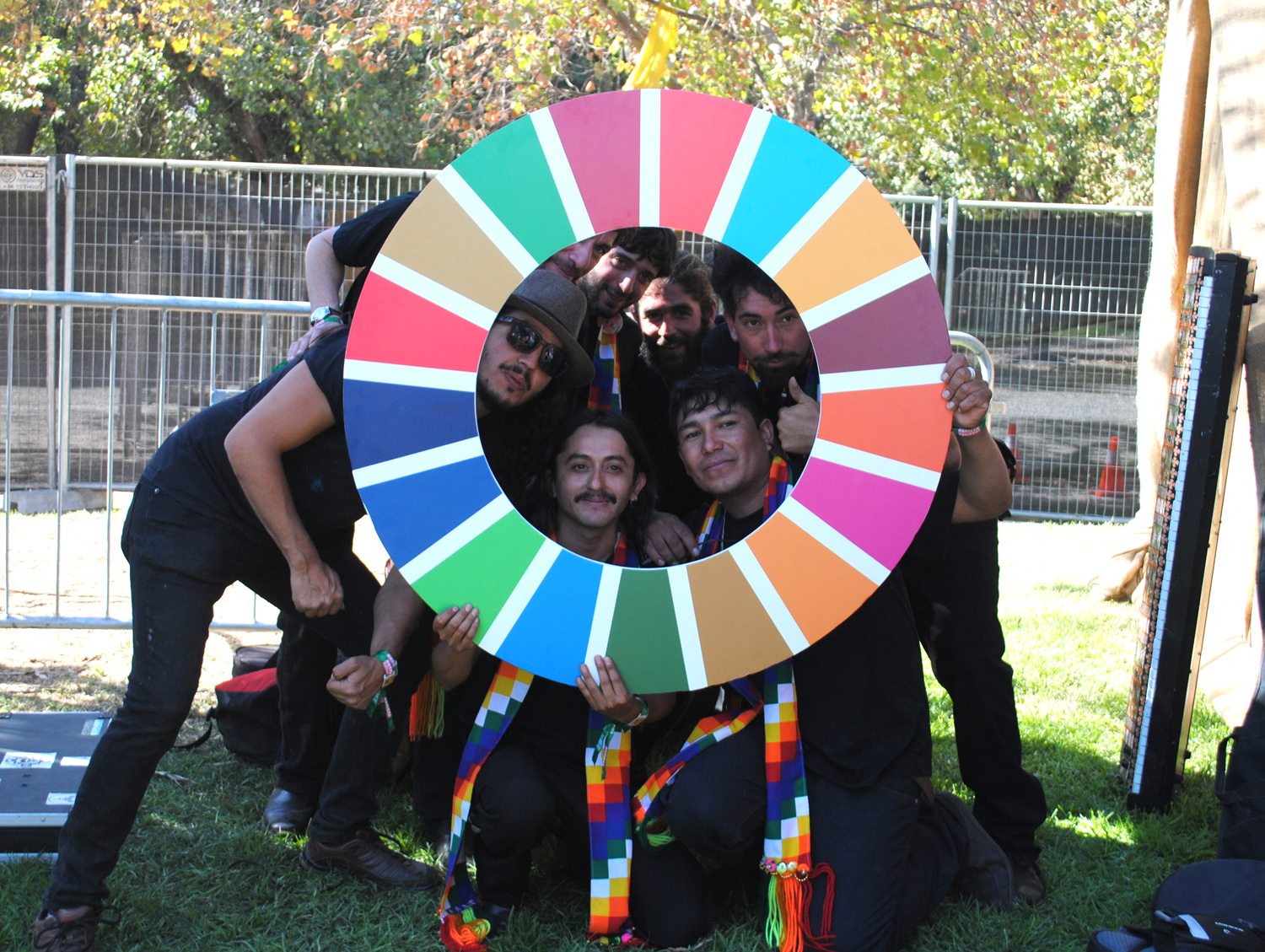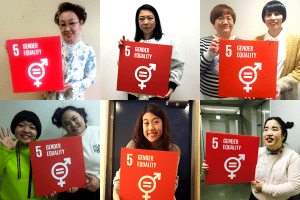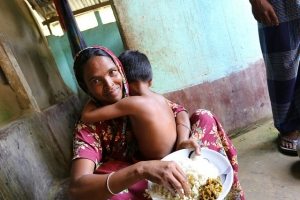During the High-Level Political Forum on Sustainable Development, 44 countries, both developed and developing countries, are presenting their Voluntary National Reviews or plans to achieve the Sustainable Development Goals (SDGs) during the 3-day ministerial meeting from 17-19 July. Among them, 12 countries—Brazil, Luxembourg, Nepal, Indonesia, Japan, Monaco, Bangladesh, Costa Rica, Kenya, Netherlands, Chile and Malaysia—will be presenting their reviews on 17 July.
The 44 countries are: Afghanistan, Argentina, Azerbaijan, Bangladesh, Belarus, Belgium, Belize, Benin, Botswana, Brazil, Chile, Costa Rica, Cyprus, Czech Republic, Denmark, El Salvador, Ethiopia, Guatemala, Honduras, India, Indonesia, Iran, Italy, Japan, Jordan, Kenya, Luxembourg, Malaysia, Maldives, Monaco, Nepal, Netherlands, Nigeria, Panama, Peru, Portugal, Qatar, Slovenia, Sweden, Tajikistan, Thailand, Togo, Uruguay and Zimbabwe.
Governments, businesses and civil society are taking bold actions to demonstrate their strong commitment to achieving the Goals and ensuring no one is left behind.
*****
Bangladesh
In Bangladesh, new varieties of rice made using nuclear techniques have helped the country to increase its rice production three-fold in the last few decades. Thirteen new rice varieties have been developed by the Bangladesh Institute of Nuclear Agriculture (BINA), in part through the International Atomic Energy Agency (IAEA) and its technical cooperation programme, using “plant mutation breeding” since the 1970s. Binadhan-7 is one of the several rice varieties developed by BINA scientists with the support of IAEA and the Food and Agriculture Organization of the United Nations (FAO).
Seeking to lift women out of poverty, the Local Government Division in Bangladesh with technical support provided by the SDG Fund, through the United Nations Development Programme (UNDP) and the International Labor Organization (ILO) are providing 18 months of employment through the Strengthening Women’s Ability for Productive New Opportunities (SWAPNO) project.
The Activating Village Courts Project has been providing legal services and access to justice to over 7 million people primarily in rural areas, since its inception in 2010. The first phase of the project was implemented in the period 2010- 2015 in partnership between the United Nations Development Programme (UNDP), the Government of Bangladesh and the European Union, ensuring access to justice to the most vulnerable and poor.
Chile
Working across the board with various ministries including foreign affairs, social development, environment, economy and tourism, Chile established a National Council that oversees the integration of the Development Agenda. Moreover, its Government Programme for 2014 to 2018 aims to promote inclusive development focusing on the reduction of inequalities and poverty in all its forms. A human rights approach is also being incorporated into the national programme.
Costa Rica
In Costa Rica, the Government signed a National Pact for the Sustainable Development Goals (SDGs) in September 2016 together with heads of the three branches of the Republic, civil society, religious organizations, businesses and citizens, pledging to promote and comply with the SDGs and monitor and report on the implementation.
Japan
The Government of Japan is increasing efforts to enhance the potential of young professionals in the world’s newest country – South Sudan. By supporting the “UNITAR South Sudan Fellowship Programme” led and initiated by the United Nations Institute for Training and Research (UNITAR) Hiroshima Office in 2015, Japan is not only supporting the stability and growth of the post-conflict country locally but also helping to advance the SDGs globally. The fellowship, which targets young professionals in the government, civil society organizations, private sector and academic institutions is a sixmonth-long training programme tailored to respond to the specific needs of South Sudan, focusing on knowledge, skills and attitudes needed for effective project management, youth leadership and social entrepreneurship.
Yoshimoto Kogyo, Japan’s comedy-entertainment giant has joined forces with the United Nations Information Centre (UNIC) in Tokyo, to promote the importance of the 17 Sustainable Development Goals (SDGs). In March 2017, Yoshimoto Kogyo and UNIC Tokyo jointly organised an online campaign for International Women’s Day under the new partnership. Several popular female comedians from Yoshimoto Kogyo shared their messages on gender equality with the Japanese public through websites and social media platforms showing solidarity with all women around the world. Their messages, based on their own experiences, deeply resonated with the Japanese public.
Also in Japan, Tohoku University International Research Institute of Disaster Science (IRIDeS), Fujitsu Limited and the United Nations Development Programme (UNDP) agreed to form a partnership to build and operate a new global database, in the Global Centre for Disaster Statistics (GCDS), that aims to reduce the damage caused by major natural disasters around the world.
Kenya
In Kenya, the Government recognizes energy as one of the country’s key enablers of economic and human development, since energy provides critical opportunities for the country. With access to affordable energy, businesses can thrive, industries can increase productivity, hospitals can operate properly, households can improve livelihoods and students can study at home at night. Through the Rural Electrification Programme and the Last Mile Connectivity Project, efforts are being made in Kenya to harness the resources of renewable energy, such as wind, solar, geothermal, hydro and biomass energy, to ensure that all people have access.
Nepal
In Nepal, the Government prepared its first SDG country report, detailing and taking stock of its current development context, the starting line for the SDGs. This report is expected to guide the work plan and implementation of the SDGs in the coming years as Nepal aligns its periodic plans along with the 17 Goals and their targets. This made Nepal the first country in the world to publish its SDG country report and symbolizes Nepal’s commitment and readiness to execute the SDGs.
*****
The programme and summaries of each country’s actions and plans are available online at: https://sustainabledevelopment.un.org/hlpf
- RedCarpetAG3I4401/OKINAWA INTERNATIONAL MOVIE FESTIVAL
- Youth take a leading role to raise awareness and mobilize stakeholders for the SDGs. In this photo, a group of youth from YUWA, a youth organization supported by UNDP pose for a photo during a college-level orientation program on the SDGs/ Laxmi Prasad Ngakhusi/UNDP Nepal
- Well-known female comedians promoting SDG5 on International Women’s Day in solidarity with all women around the world (March 2017) © YOSHIMOTO CREATIVE AGENCY 
- Power at their fingertips: This pupil at Oloshoibor primary school now has access to clean energy in her school and dormitory allowing her to study and improve her performance. © UNDP Kenya
- Excited pupils from Ramadhan primary school can now use proper reading light when doing their homework, instead of using kerosene lamps or reading near the fireplace in their homes after UNDP distributed the lanterns in Isiolo County. © UNDP Kenya
- © UN Resident Coordinator’s Office in Chile
- Many farmers in Bangladesh are now growing new plant varieties developed by scientists at the Bangladesh Institute of Nuclear Agriculture (BINA). © Nicole Jawerth/IAEA
- Binadahn-7 is a new rice variety with a softer texture, but a good taste. It is also faster to grow and higher yielding compared to local varieties. Many farmers in Bangladesh are now growing new plant varieties developed by scientists at the Bangladesh Institute of Nuclear Agriculture (BINA). © Nicole Jawerth/IAEA
- © United Nations in Costa Rica










